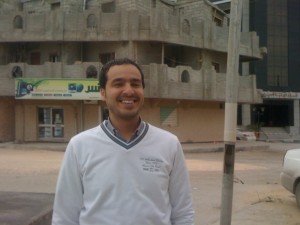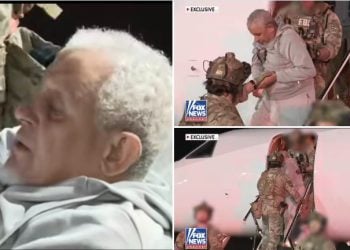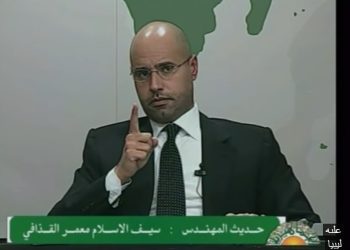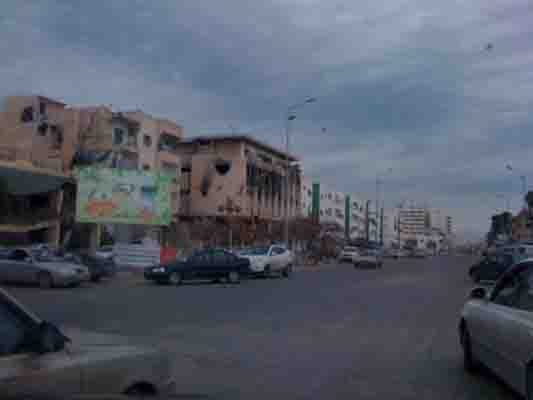Voters headed to the polls today in . . .[restrict]war-shattered Misrata to elect 28 councillors to run the city. It is the first council elections there for over 40 years. There are 245 candidates. They include four women.
The date for the election, 20 February, was chosen because it is the first anniversary of the day Misrata rose up against the Qaddafi regime and declared its freedom.
Voting at the 78 polling stations across the city and district continues all day. The vote is on the first-past-the-post system. According to election officials, results may be available late Sunday evening but they will be officially declared on Monday 21 February.
At the local nursing college turned into the election headquarters, volunteers on Saturday were carrying the final jobs before the vote. Plastic voting boxes from Tunisia were being unloaded, passes were being sorted out for the many observers who will be visiting polling stations, and bottles of ink, also from Tunisia, were set aside for voters will dip their fingers in after they have voted to prevent multiple voting.
It has been an epic process for the committee overseeing the election, and all done on a budget of less than LD 400,000. Headed by Mohamed Berween, a professor of politics at Texas A&M International University in the US, it has had to develop the practice of democracy from scratch.
There was no democratic infrastructure in the city of half a million. There was no list of electors, no existing system to activate. Everything has had to be invented from scratch — and in a matter of less than two months. Remarkably, it has.
Berween, who comes from Misrata and only returned after 33 years of exile at the beginning of December, was asked to head the election committee after giving a series of local lectures on elections. Since then, he and his team of volunteers have been working every day to set up a system
“We not just running an election, we’re establishing an election institution,” Berween explained.
The first major task was to register the electors. “We didn’t have a data base.” The 2006 census was not up to not up to the job.
The registering was started last month and by Saturday, over 100,00 people had put down their name to vote. The registration process was managed by less than 20 people.
Berween and the team of volunteers — altogether they number less than a hundred — simply have not have the time to develop what would be a perfect electoral system. “We had nothing to start from,” he said.
There have had to be compromises. For example, election districts have been based on the existing districts.
The ten districts were allocated seats according to their population, one for every 15,000 people. The less populous districts on the outskirts of the town were given one seat each, the more populous in the city centre were given two or three. To this, each district has been given an extra seat to encourage greater political activity and public enthusiasm for the process. The result is that three districts have two seats each, six have three, and one at the very centre has four.
Berween sees the work being done as “an investment” not just for the city but the whole country and describes today’s vote in celebrationary terms. “We’re creating a road map,” he said, firmly convinced that other cities and towns would copy it. “We’ve asked cities to come and see the Wedding Day for rebuilding our country.”
Official observers have come from Tripoli, Benghazi, Derna, Tobruk, Gharian and other local councils across the country and will be visiting the polling stations throughout the day to assess the system. They have been given a questionnaire to provide their views about the poll, so that if necessary, improvements can be made for the future.
Observers are also expected from the UN and EU both of which have endorsed the electoral system.
The committee not only had to devise a system, it has had to vet candidates to ensure that their suitability in line with the criteria set by the road map. “Some did not,” disclosed Berween.
All candidates have had to be proposed by 20 local electors from the district in which they are standing. The youngest is 28-year old Al Mahdi Abdulati, who runs his own PVC windows and doors business as well as working part-time as journalist for the local Al-Watan newspaper. He is standing in the central Dat al-Rumal district where 35 other candidates are contesting the three available seats.
He told the Libya Herald that he wanted “to help our people here and do the best for Misrata”.
In particular, he felt that there had to be a focus on young people. “We must try to help young people to build a new Libya.” Too many of them were without jobs and without anything to do, he said. “We need to give them a good education and skills,” he said, adding that rebuilding and developing Misrata was also needed. “Qaddafi did not build our city. We need to have parks and hotels and places to go.”

Another candidate is a local doctor Tamim Abugharsah who, however, has not been able to campaign. He is in hospital in The Netherlands being treated for war wounds, to his legs. He was shot fighting at Sirte.
Berween is quietly but clearly proud of the road map for democracy and the fact that it has been created in so short a space of time. It was, he said, “a great start” not just for Misrata for Libya as well. “The town can be proud of creating an institution that be used all over Libya”
Libya, he said, has not only fought for democracy, it is now devising its own democratic systems. “I am confident that what we have done so far is up to proper international standards,” he said.
“This is a Libyan, Libyan, Libyan process,” he emphasized. “We want to show the rest of the world that just as we ourselves got rid of Qaddafi, so we can rebuild the country ourselves.”
[/restrict]










